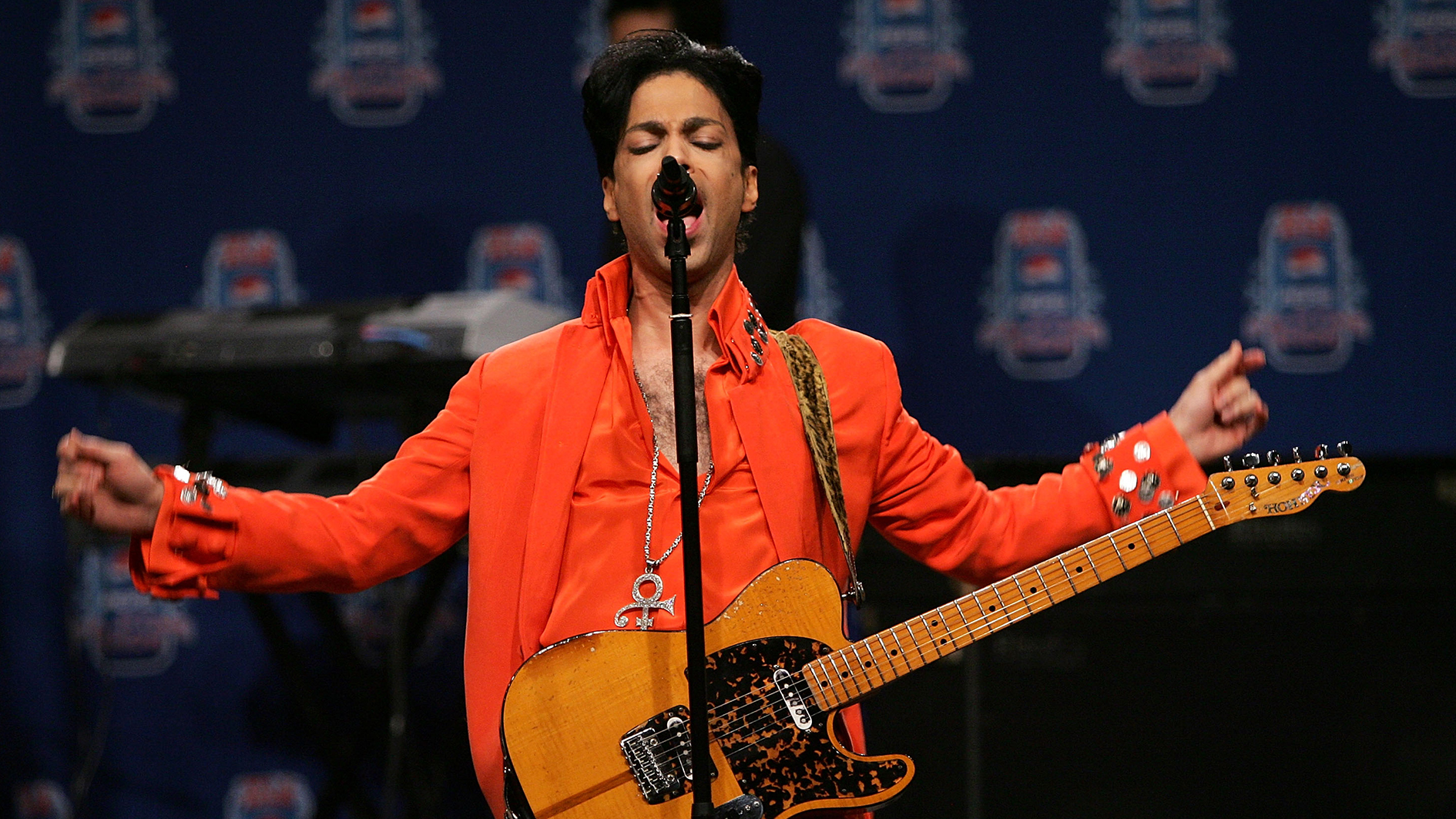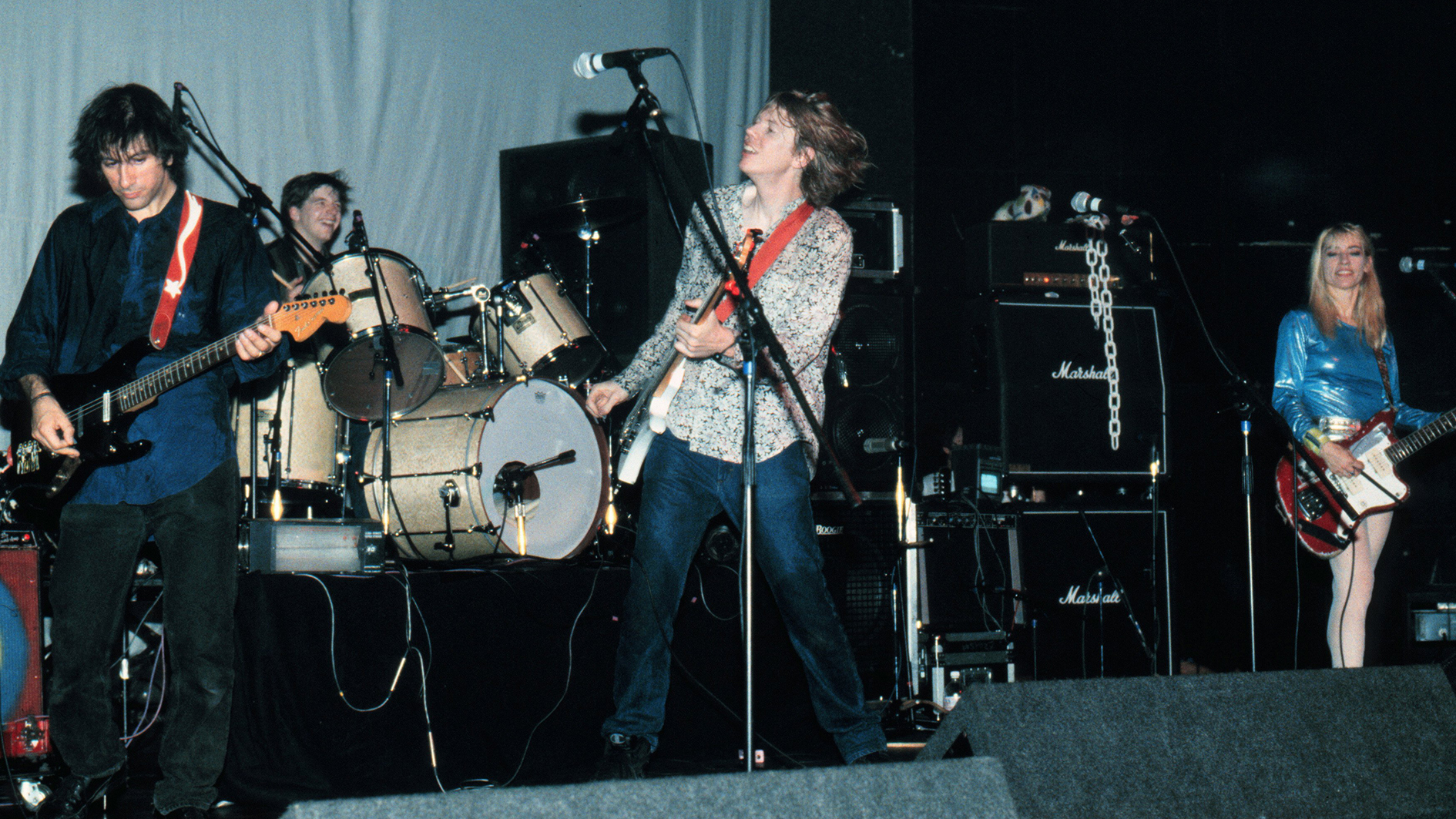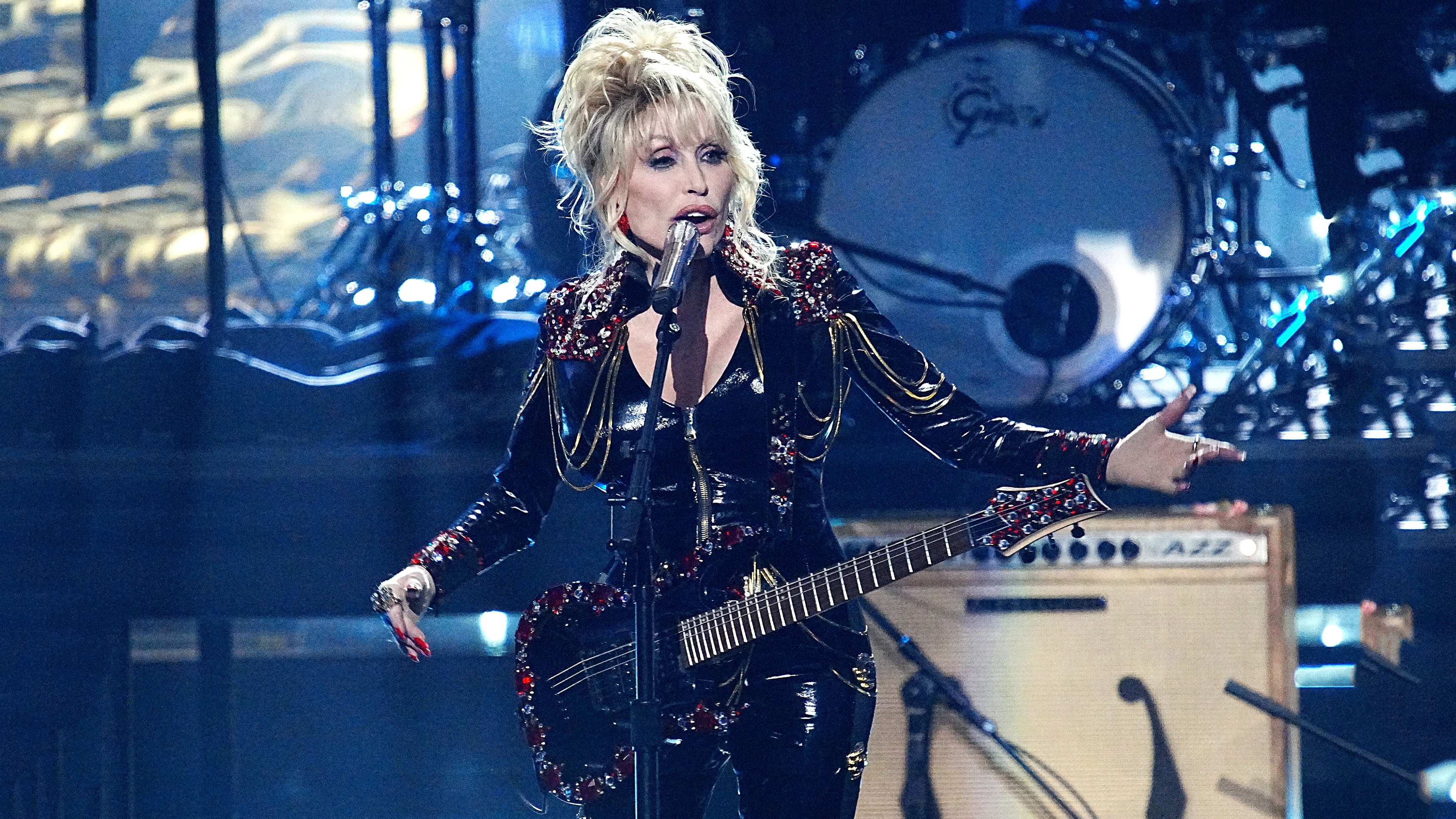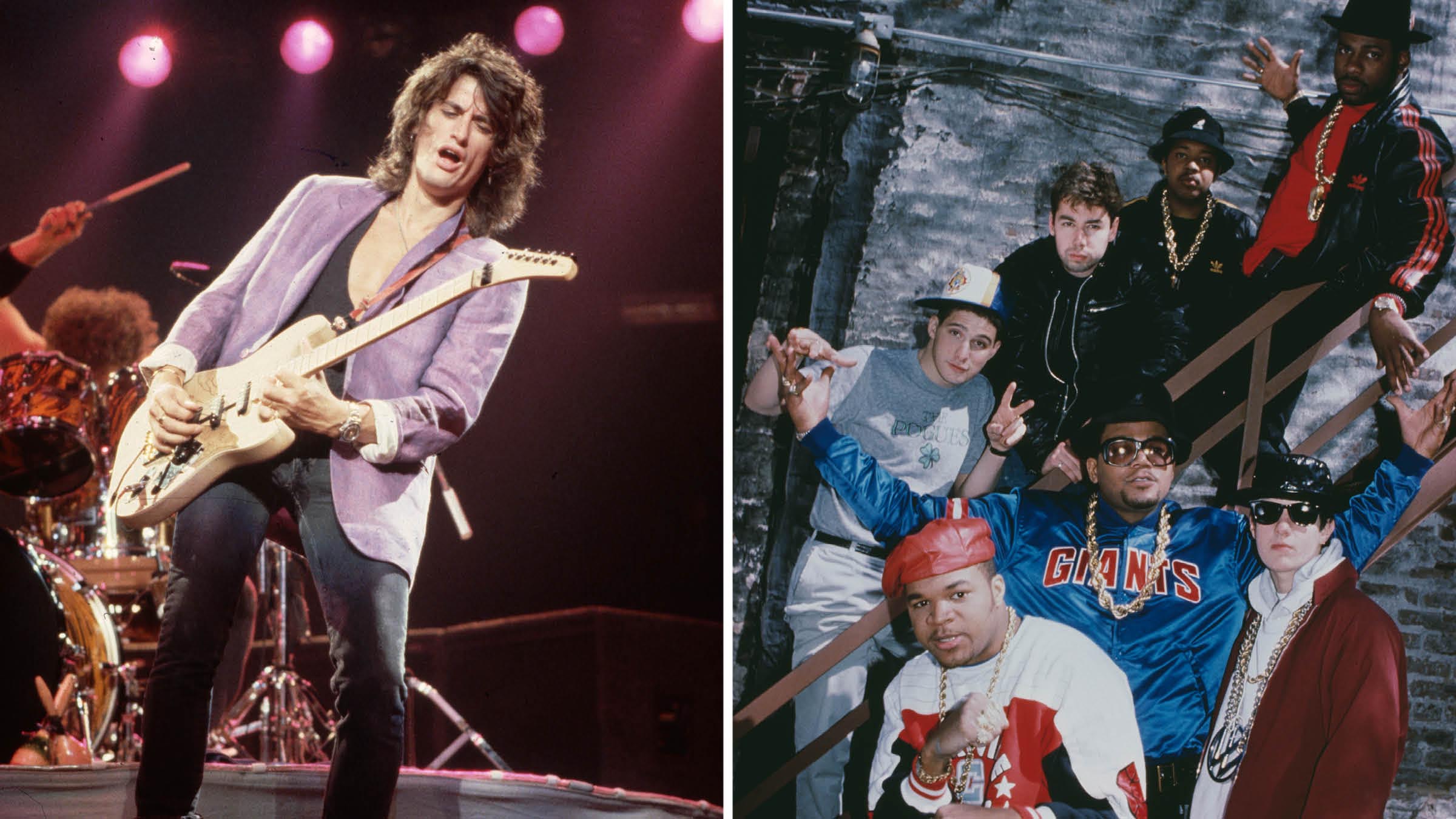19 pro guitarists who play cheap guitars
Because not every song requires a custom shop instrument to get the tone right

All the latest guitar news, interviews, lessons, reviews, deals and more, direct to your inbox!
You are now subscribed
Your newsletter sign-up was successful
Do you need an expensive electric guitar to write and perform great music? Now, to answer this question, ideally we would gather a Live Aid’s worth of musicians in an aircraft hanger, position an over-sized condenser mic in the middle of them, and have them shout “No!” at the top of their lungs.
But this is not an ideal world, so here’s a list of very cool players – very different players – who have chosen something odd, something cool, but ultimately something cheap as the right tool to get the job done.
There is an inherent difficulty in defining what counts as cheap. When any of these players pick up a once-forgotten piece of gear – say an old catalog/department store guitar like a Sears Silvertone – and then consecrate it on record with the tune of the year, then naturally people want those guitars, and because no one’s making them any more the price rises. That’s just a paradox of retail economics that we’re going to have to live with here.
But what these guitars have in common is that they were built primarily with budget in mind. Many had been forgotten for years, and by the grace of tonehound curiosity, they have been ferreted out of obscurity to soundtrack our lives.
The thing is: here are the likes of Derek Trucks, the world’s most-gifted slide player, playing a chipboard Silvertone, Van Halen reliving his early teens with a Teisco, and Prince, the Purple One himself, whose number one guitar was a Japanese Tele copy, a left-of-center choice for one of the artists of the modern era.
Well, that’s as good a place to start as any...
- The best acoustic guitars under $500: sound great on a budget
- Best cheap electric guitars under $500: 12 epic electrics for smaller budgets
- 12 killer cheap guitar pedals you need to try
1. Prince
Guitar: Hohner Madcat Telecaster
All the latest guitar news, interviews, lessons, reviews, deals and more, direct to your inbox!
Stories abound that His Royal Badness bought the Madcat for 30 bucks from the back of someone’s car. Or from a Minneapolis guitar store (more plausible?). Either way, it wasn’t expensive and its build is worthy of note.
Made in Japan during the ‘70s under Moridaira’s H.S. Anderson brand, who later sold it to Hohner, the Madcat was designed by Hidesato Shiino and has an ash body topped with figured maple with a walnut centre strip. It has two Strat-style single coils, and a six-saddle hardtail bridge. Oh, and a leopard print pickguard and jack plate that Prince accessorized with a matching strap.
Hohner has reissued it as The Prinz. Bill Lawrence made a version. And H.S. Anderson has now reacquired the design and is selling deluxe period-correct Madcats with upgraded pickups and Gotoh hardware. In the spirit of cheapness, Harley Benton does a version for under $200.
2. Brian May
Guitar: The Red Special
You can’t get much cheaper than constructing your own guitar with your dad from materials that were lying around the house. We’d hesitate to call the Red Special cheap, though. It’s priceless, and there’s a difference.
In an interview with Total Guitar, Brian May said that the inspiration behind the guitar was his voice. “I wanted it to have the smooth tones of a singer, but also the ‘consonants’, sort of the definition which gives you the words when you’re singing.” Crucially, May’s homemade design was alive and would feedback a la Pete Townshend, opening a cornucopia of musical possibilities that May would exploit fully with Queen.
3. Eddie Van Halen
Guitar: Teisco ET-440, Teisco Spectrum 5
Eddie Van Halen has some history with budget Teisco guitars – technically Teisco Del Ray guitars, as they were rebranded after ’64, but you get the drift. EVH turned up with a Spectrum 5 in the video for twangin’ Hagar-era hit Finish What You Started, and was even photographed on the cover of Guitar World with one.
Maybe it was nostalgia. His first guitar was Teisco ET-440 that he picked up for 70 bucks once he decided to swap drums for guitar with his brother, Alex, which is not really that relevant as the four-pickup oddity was his tool to copy his favorite licks, not write Hot for Teacher. But still, you never forget your first love.
4. Billie Joe Armstrong
Guitar: Fernandes S-style
Billie Joe Armstrong is like any number of punks who were given a cheap-o Superstrat as a kid and then radicalized it through adulthood, pummeling it mercilessly and ultimately modifying it with a proper humbucker and making it your number one.
The Green Day frontman’s Fernandes, aka Blue, is stickered, half-trashed, with millions of road miles on the clock, and yet somehow it is perfect for Armstrong’s stadium-friendly punk sound, and the Seymour Duncan JB humbucker is a judicious upgrade with plenty of snarling mids.
5. Derek Trucks
Guitar: 1964 Silvertone Tuxedo
Derek Trucks says he got his Silvertone Tuxedo for maybe 500 bucks, which means it is not cheap per se, but for a mid-‘60s instrument that’s in near-mint condition, stock except for Gibson tuners that were fitted before Trucks got it, that is cheap in anybody’s book.
Trucks got it from Ed Seelig at Silver Strings Music and Repair in St. Louis, Missouri, and capos it at the fifth fret. “It’s probably plywood,” he says. “It’s not one of the finer instruments but I love it; it’s got a personality. It’s a great-sounding guitar, a slide machine.”
6. Robby Krieger
Guitar: Kay Guitars
Robby Krieger has forever been associated with the Gibson SG but for the past five years, whenever he has needed something for a slide part, he has been using his friend and collaborator Arthur Barrow’s Kay guitar.
How would you describe it, Robby? “It’s old and cheap” he says, “but for some reason it sounds good on the slide.” Hear it on Krieger’s latest, The Ritual Begins at Sundown. Kay guitars have always been affordable, and the company has made instruments for retail company brands such as Sears’ Silvertone and Montgomery Ward’s Airline.
7. Kirk Hammett
Guitar: Fernandes ‘Edna’ Strat copy
While Metallica’s lightning-fingered lead guitarist is now most associated with arguably the most famous guitar in the world, Greeny, the ’59 Les Paul once owned by two sadly departed blues-rock legends, Peter Green and Gary Moore, it was common in the early ‘80s to see him break out one of his Fernandes S-styles, the most famous of which was nicknamed ‘Edna.’
As he explained to Guitar World back in 2016, when he went to record Ride the Lightning, he only had three guitars – a red Flying V with a white pickguard, a red Fernandes and Edna. Hard to imagine, but Metallica were still underground then, and equipped (surely modded) with EMG single coils and a double-locking vibrato, Hammett’s FST-135 represented excellent value for the jobbing hesher.
8. St. Vincent
Guitar: 1967 Harmony Bobkat
Before Ernie Ball Music Man was defenestrating the drawing board for St. Vincent’s groundbreaking signature model, she was using what was ever to hand that sounded good. There were various Teles, a Thurston Moore signature Jazzmaster, but most notably there was a 1967 Harmony Bobkat, complete with those ever-so microphonic gold-foil pickups, and a Silvertone 1488.
She cites their sound and a surprisingly stable vibrato as key selling points, but also the fact they they are lightweight, which takes us back to her Ernie Ball Music Man signature model, a guitar that’s spec’d for a smaller frame and challenges the idea that we need a slab of mahogany and maple to make a super-sustaining electric guitar. Oh, and the tone on that Bobkat? Exquisite. But then again, it’s the player.
9. Joe Trohman
Guitar: Squier Joe Trohman Signature Telecaster
Now, we all know the music business can be a fickle beast, and artist remuneration is frankly a disgrace, but there’s no way that Fall Out Boy’s Joe Trohman can’t afford a more expensive guitar than his own Squier Signature Tele – a guitar that he sure got free.
But it speaks to the playability, build quality and tone of Squier instruments these days that Fender’s entry-level junior brand is good enough for the road. It also is very Trohman. He might have people lining up outside his hotel whenever FOB tour, but he’s got a blue-collar working musician thing going on, and it’s an example to us all when we are fussing over getting “a better guitar.” Maybe the one we can afford right now is good enough.
10. Mike Rutherford
Guitar: Squier Bullet Stratocaster
Though partial to Eric Clapton Strats, Genesis axeman Mike Rutherford unexpectedly began using the cheapest Fender-affiliated Stratocasters you can buy, Squier Bullets, for the prog icons’ 2021 The Last Domino? tour.
Stuck in Cape Town, South Africa at the onset of the COVID-19 lockdown in early 2020 without any of his usual gear, Rutherford managed to snag a couple Squier Bullets from a local music store, and quickly fell in love, playing them through a Blackstar Fly3 mini amp to practice and relearn Genesis tunes.
With fewer modifications from his tech than you might imagine, Rutherford went on to take several Bullet Strats on the road with Genesis, using them for Mama and No Son of Mine.
11. Laura-Mary Carter
Guitar: Teisco (model unknown)
Laura-Mary Carter calls her Teisco her “trash guitar.” She is unsure of the exact model, only that it’s from the ‘60s. But she’s also more than aware of how important it is to her sound and her writing. She wrote An Animal as soon as she picked up the guitar.
It’s one of Blood Red Shoes’ most popular songs, and it just wouldn’t work on her Tele or SG. “If anything happens to this guitar I just won’t be able to play that song,” she says. “It’s got incredible low-end. It doesn’t sound like anything else. It’s completely trash but I love it so much."
12. Beck
Guitars: Harmony Silverton Newport H42, Silvertone 1448
If you are looking to recreate the lo-fi slacker tones of the pope of alt-rock, Mr. Beck Hansen, have a dig down into the back of the sofa. You might just find enough spare change to afford a Silvertone 1448.
Now, it’s nothing fancy. Plucked from the Sears catalog once upon a time, but now passed down through generations via Reverb, eBay and garage sales across the country, this particle-board oddity only cost Beck some 60 bucks or so, but listen to the tone he gets. It’ll surely have a big old neck like St. Vincent and Derek Trucks’ Silvertone, but when it sounds that good, who’s complaining? Just put it through an old tube combo amp, use a slide and be talented.
13. Jack White
Guitars: 1964 "JB Hutto" Res-O-Glass Airline, Kay K6533 Value Leader
The thing about Jack White’s penchant for pawnshop is that as soon as he picks it up and electrifies it with whatever voodoo mojo is coming through his fingertips, well, that cheapo six-string becomes one of the most sought-after guitars on the market. It doesn’t matter what the build is.
White doesn’t always use curios. He plays Gretsch. He plays Fender. He plays Gibson. But when the Duke of Junk gets his hands on an Airline back or a hand-me-down Kay arch-top, some magic is about to happen and you’d best pay attention. Who else would pick up a Kay K6533 and write arguably the riff of the Noughties?
14. Dan Auerbach
Guitars: Höfner 176 Galaxie, Harmony Stratatone, Ibanez SG lawsuit era, Teisco Del Rey
No list like this could be complete without the connoisseur of the catalog, Dan Auerbach of The Black Keys. A rummage through Auerbach’s guitar collection might find a cornucopia of Custom Kraft hollowbodies and other OOP oddities from the likes of Höfner, Teisco, Harmony and Silvertone in amongst the Gretsches and Guilds.
He has also grappled with that kissing cousin of the Danelectro, the Comet Hornet, which was designed by Vincent Bell who played baritone guitar on the Twin Peaks soundtrack, and on the most recent Black Keys album, Auerbach played his lawsuit-era Ibanez SG and a Teisco Del Ray 4 that once belonged to Hound Dog Taylor.
15. Angel Olsen
Guitars: 1957 Silvertone 1369, Silvertone U1
While we would associate Angel Olsen with her Mozart-esque use of reverb and the Gibson S-1, with its triple single-coil format and Flying V headstock on a double-cut making it a real curio, she has been known to break out the Silvertones on occasion. She played a U1 at Pitchfork Festival in 2017, and uses the 1369 Thin Twin.
Also known as the Thin Twin because of its dual blade single-coil setup, this is Silvertone design at its most stately. While most of these Jimmy Reed-endorsed models have a white headstock facing, it was updated for Spring/Summer 1957 with a black headstock and a new model number. Original catalog price: $104.95 cash. If you see one in a thrift store, buy it. In pristine condition they’ll fetch a grand or more.
16-18. Lee Ranaldo, Thurston Moore, Kim Gordon

Guitars: Fernandes FST Strat copy, Fernandes Native Pro, Hopf Telstar Standard, Musima Eterna
Because of the many alternate tunings they used on a song-to-song basis, Sonic Youth needed guitars and lots of them, so they were not set up to tour without loading some cheaper guitars onto the boat.
That’s why the gear theft of ’99 was so debilitating. So much was lost. That’s partly why Jazzmasters and Mustangs entered the picture; they were cheap. Of course, as with the vintage Silvertones and pawnshop Harmony holdovers, success inflates the prices and the now ubiquitous presence of the Fender offset is in no small part down to Sonic Youth’s influence on the wider alt-rock culture.
Some of the most notable budget-centric guitars that saw action included Lee Ranaldo’s pink Fernandes Strat copy, the East German Musima Eterna that Moore and Gordon both played. We’ve also seen Moore play a Silvertone post-Sonic Youth. But there is no band on this list who exemplifies the ideal of using affordable guitars for artistic endeavor more than Sonic Youth.
19. Dolly Parton

Guitar: Mitchell MM100
Though the 2022 Rock Hall induction ceremony had its fair share of high-end gear on display, it was Dolly Parton’s humble mini electric guitar that stole the show. Parton playing an electric is notable itself, but Parton playing a $99 Mitchell MM100 is even more of a story.
The humble model made its debut on the biggest stage of them all when Parton premiered her new single Rockin’, and its shrunken body and proprietary humbuckers helped squeeze out some of the tastiest tones of the evening – no mean feat, given the competition.
Like many on this list, Parton is partial to customizing and playing cheap guitars, and her Mitchell MM100 certainly wasn’t the first sub-$100 six-string she’s taken to the stage. In the past, she’s been spotted with a bedazzled Samick Greg Bennett Malibu Series Strat-style guitar – another wallet-friendly example that can be copped for around $85, minus the flashy rhinestone finish.
Jonathan Horsley has been writing about guitars since 2005, playing them since 1990, and regularly contributes to publications including Guitar World, MusicRadar and Total Guitar. He uses Jazz III nylon picks, 10s during the week, 9s at the weekend, and shamefully still struggles with rhythm figure one of Van Halen’s Panama.
- Matt OwenNews Editor, GuitarWorld.com

